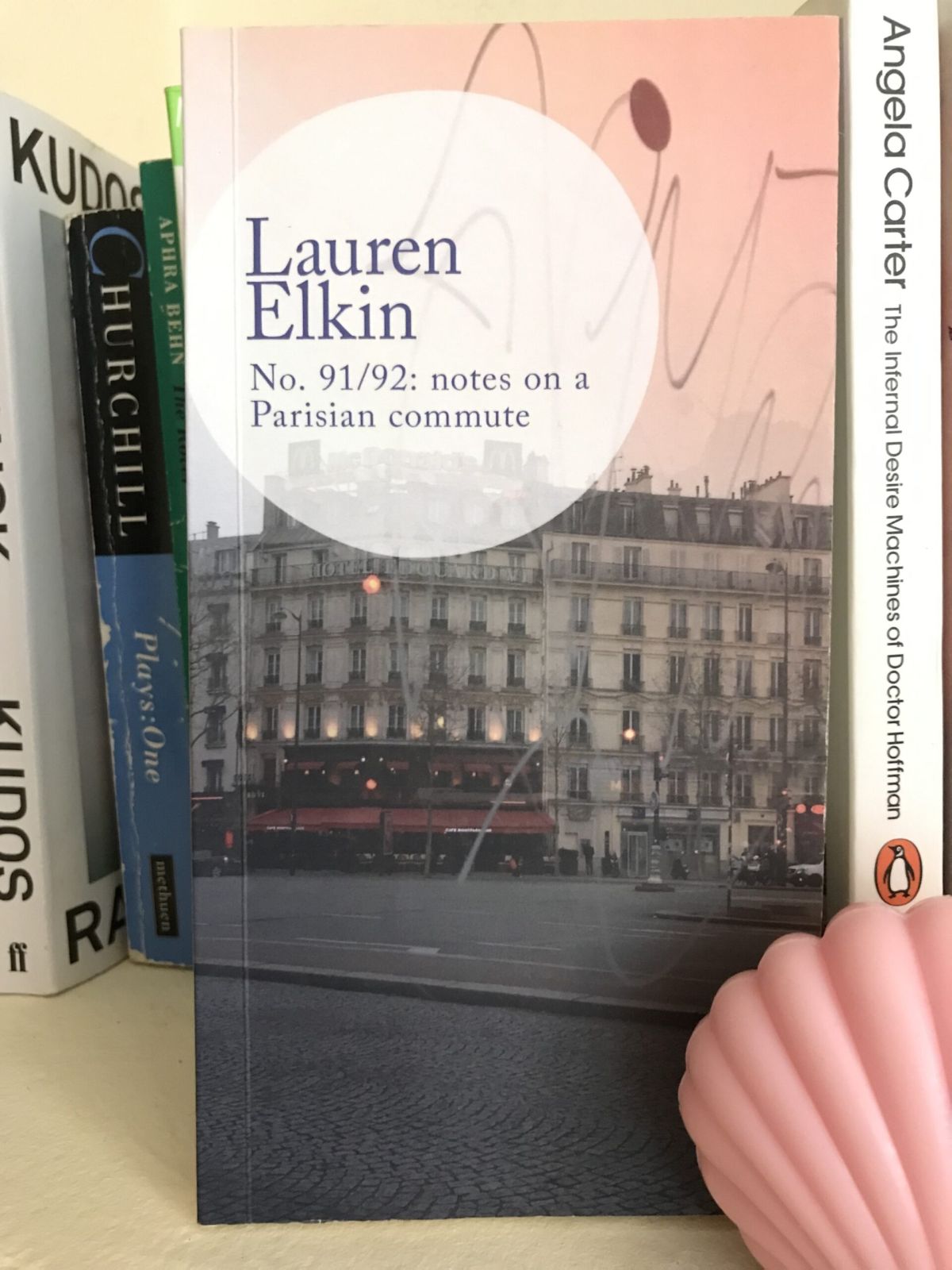
Lauren Elkin’s book No. 91/92: Notes on a Parisian Commute records the notes Elkin decided to take on her phone on her bus journey to work each day from September 2014 to May 2015. During her routine journeys along the 91 and 92 bus routes, Elkin decided to seize the opportunity to observe, using her phone to engage with the hum of daily life that surrounds us each time we take public transport, rather than switching off.
What the reader sees in Elkin’s work is the beauty that comes with the observation of the “infra-ordinary”, a term coined by the French thinker George Perec. She describes in her notes how in one of Perec’s works he attempts to sit in a square in Paris and describe everything that was happening. Every thing. It is the impossibility of this feat, recording the endless business of what we call the mundane, that gives value to so meticulously engaging with it.
For Elkin, there is so much importance in the song a child sings in the seat next to you, in the politics of who will give up their seat and for whom, and in the rage these things sometimes provoke. Her work tracks how public spaces brim with the emotions, feelings, and moods of those who occupy them.
No. 91/92: Notes on a Parisian Commute demonstrates how we are all perceiving each other constantly, creating stories and impressions about each other’s lives, and how we constantly impact other people. We spill beyond the boundaries of our own bodies, our own interiority, and it is important to take note of this as it is the essence of society.
I look down at my phone. It is precious (it was expensive). I will take their advice. I will be vigilant when using it. I will carry out a public transport vigil, and use my phone to take in the world around me.
The period Elkin writes about happens to coincide with multiple terrorist attacks in Paris: the Charlie Hebdo and Hypercacher attacks, and the attacks of November 2015. The way in which these crop up so suddenly in Elkin’s writings, for how could they have been foreseen, marks something that deeply interests her: when the everyday becomes an event. The simple act of getting the bus to work becomes highly politicised: ripples of fear and grief move through the commuters of the bus. Elkin conveys a communal sensitivity that gives Parisians a sense of being part of one tender body that has just been injured.
I think this book comes at a particularly relevant time, a time where we have all collectively experienced trauma and struggle. It is a time when ordinary, daily acts keep slipping in and out of acceptability: is it even safe to take the bus? I think Elkin chose to publish these notes at this point to remind us to be observant, and to remind us to value what is ordinary. To focus on the ordinary is to focus on the “fabric of peace” and work out how to rebuild it.
The moments of history which shatter our everyday are moments to redefine our togetherness
No. 91/92: Notes on a Parisian Commute reminded me that what really binds us together is the acting out of daily things: eating, sleeping, walking to our work or university. Every one of us experiences things like these. Every one of us is part of daily life, which sometimes becomes history. It is a reminder that we are in no way isolated beings, that, although we are separate, we act together and alongside each other every day. I think that this is deeply empowering. ‘I believe this is called community’.







